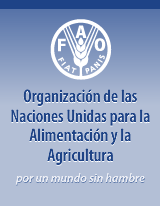Videos
 Forests are nature’s powerhouse and a vital resource for meeting the world’s renewable-energy demand. [more] Forests are nature’s powerhouse and a vital resource for meeting the world’s renewable-energy demand. [more] |
 Forests and trees absorb the sun’s energy and store it by turning it into wood—the world’s most used source of renewable energy. While we have been using this energy source to cook and heat our homes since the discovery of fire, today’s scientific advances are opening up even more uses, like turning wood waste into liquid biofuels that fuel cars and airplanes. Using wood harvested from sustainably managed forests keeps a balance for future generations and ensures that wood remains a fuel of the future. [more] Forests and trees absorb the sun’s energy and store it by turning it into wood—the world’s most used source of renewable energy. While we have been using this energy source to cook and heat our homes since the discovery of fire, today’s scientific advances are opening up even more uses, like turning wood waste into liquid biofuels that fuel cars and airplanes. Using wood harvested from sustainably managed forests keeps a balance for future generations and ensures that wood remains a fuel of the future. [more] |
 For many households in developing countries, forests and trees are indispensable and some 2.4 billion people rely on wood for cooking. Traditional cooking methods make inefficient use of this precious commodity, leading to overuse and degradation of the forests. Improved cookstoves, which concentrate the heat and reduce the smoke of burning wood, offer an alternative for communities to use their forest resources more sustainably. [more] For many households in developing countries, forests and trees are indispensable and some 2.4 billion people rely on wood for cooking. Traditional cooking methods make inefficient use of this precious commodity, leading to overuse and degradation of the forests. Improved cookstoves, which concentrate the heat and reduce the smoke of burning wood, offer an alternative for communities to use their forest resources more sustainably. [more] |
 Forests cover nearly a third of the earth’s land surface and serve as a fuel source much as it has for millennia, currently accounting for about 40 percent of the global renewable energy supply - as much as solar, hydroelectric and wind power combined. Thanks to new technological advances, forests can also fuel cars, trucks, buses and even airplanes. In Finland, waste residue from the pulp-making process is being turned into biodiesel that burns cleaner than petroleum and which is available at filling stations for people to refuel their cars. [more] Forests cover nearly a third of the earth’s land surface and serve as a fuel source much as it has for millennia, currently accounting for about 40 percent of the global renewable energy supply - as much as solar, hydroelectric and wind power combined. Thanks to new technological advances, forests can also fuel cars, trucks, buses and even airplanes. In Finland, waste residue from the pulp-making process is being turned into biodiesel that burns cleaner than petroleum and which is available at filling stations for people to refuel their cars. [more] |
 Ms. Riikka Joukio, Senior Vice President of Sustainability and Corporate Affairs for the Metsä Group on wood as a fuel of the future and how to ensure its sustainability. [more] Ms. Riikka Joukio, Senior Vice President of Sustainability and Corporate Affairs for the Metsä Group on wood as a fuel of the future and how to ensure its sustainability. [more] |
 Several hundred thousand people fleeing civil war, drought and famine in South Sudan have come to Gambella in western Ethiopia, leading to a doubling of the region’s population in just a few years. This unprecedented influx has increased pressure on the local environment as refugees fell trees to meet their needs for woodfuel for cooking and in turn, for food and nutrition. In the long run, forest resources will be depleted. FAO and UNHCR are partnering to support the energy needs of over 200,000 South Sudanese refugees displaced in four refugee camps in the Gambella Region to reduce the impact on the forest resources and host community. [more] Several hundred thousand people fleeing civil war, drought and famine in South Sudan have come to Gambella in western Ethiopia, leading to a doubling of the region’s population in just a few years. This unprecedented influx has increased pressure on the local environment as refugees fell trees to meet their needs for woodfuel for cooking and in turn, for food and nutrition. In the long run, forest resources will be depleted. FAO and UNHCR are partnering to support the energy needs of over 200,000 South Sudanese refugees displaced in four refugee camps in the Gambella Region to reduce the impact on the forest resources and host community. [more] |
última actualización: martes 2 de febrero de 2021
